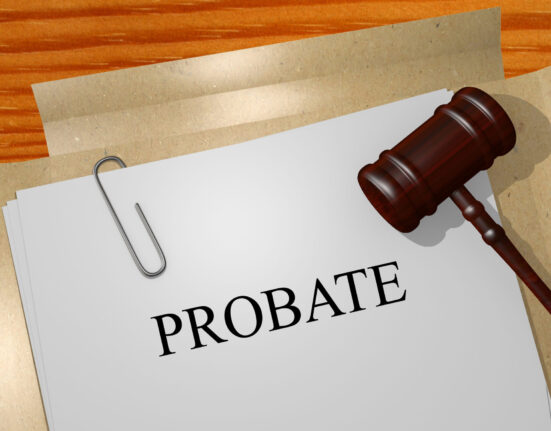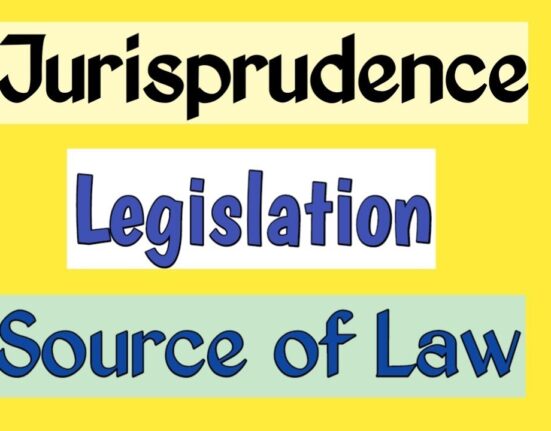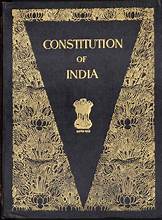Neha Jain, a 2nd–year law student from Lala Lajpatrai College of Law, Mumbai University has written this article on “Guardianship under Hindu Law”.
Introduction
Guardianship is a legal concept that plays a vital role in ensuring the welfare and protection of minors and individuals who are unable to take care of themselves. In the context of Hindu law, guardianship holds significant importance due to the deeply rooted family values and the emphasis on the welfare of children and vulnerable individuals. The Guardian and Wards Act was enacted in 1890 by the British colonial authorities. It granted district courts the power to appoint guardians for minor children of any community. This was a significant step in codifying guardianship laws, allowing the court to intervene and ensure the welfare of minors across different religious groups.
The Hindu Minority and Guardianship Act, 1956, is a comprehensive legislation that further refined and codified the laws pertaining to guardianship in Hindu families. Its primary objective is the welfare of minors, who are inherently incapable of taking care of themselves or their affairs. The Act ensures that these individuals receive the necessary support, guidance, and protection from responsible adults. The Hindu Minority and Guardianship Act, 1956, governs the aspects of guardianship in India and lays down the guidelines for the appointment, rights, and responsibilities of guardians within the Hindu community.
Definition of Minor
As per Section 4(a) of the Act, a “minor” is defined as a person who has not attained the age of 18 years. This definition establishes the age criterion for determining when an individual transitions from being a minor to an adult in the eyes of the law. It provides a clear and objective standard for identifying minors under the Act.
Definition of Guardian
Section 4(b) of the Act defines a “guardian” as a person who takes care of a minor’s physical well-being, property, or both. This broad definition encompasses various types of guardians who play distinct roles in the minor’s life:
- A Natural Guardian
- Testamentary Guardian
- Certified Guardian
Types of Guardianship under Hindu Law
Under the Act, guardianship is broadly categorized into two types: natural guardianship and testamentary guardianship.
Natural Guardians
Natural guardians are individuals who are inherently entitled to the custody and care of a minor by virtue of their relationship to the minor. There are individuals who are inherently recognized as guardians due to their familial relationship with the minor. The father is the primary natural guardian of an unmarried minor, followed by the mother. Section 6 of the Hindu Minority and Guardianship Act, 1956 recognizes three persons as natural guardians, the father, the mother and the husband.
Clause (a) – Father and Mother as Natural Guardians:
This clause of Section 6 establishes the hierarchy of natural guardianship for boys and unmarried girls. According to this provision, the father is the natural guardian of an unmarried minor, followed by the mother. However, there are specific circumstances that need to be considered:
Custody of Minors Below the Age of 5:
In cases involving a minor child under the age of 5, the custody rests with the mother. This provision reflects the importance of a mother’s nurturing and caregiving role, especially during the early years of a child’s life.
Impact of the Hindu Minority and Guardianship Act, 1956:
Before the enactment of the Hindu Minority and Guardianship Act in 1956, a father could effectively limit the guardianship rights of the mother by appointing a testamentary guardian before his death. However, after the implementation of the Act, the appointment of a testamentary guardian becomes ineffective if the mother of the child is alive. This legal provision safeguards the mother’s rights as a natural guardian and ensures her role in the welfare of the child.
Interpretation of “After” in the Act:
The Act states that the mother becomes a natural guardian “after” the father. While this might seem to imply that the mother’s guardianship commences only after the father’s death, the Supreme Court in Gita Hariharan v. Reserve Bank of India and Vandana Shiva v. Jayanta Bandhopadhaya, has clarified that “after” doesn’t exclusively mean “after the death of.” It can also denote “in the absence of.” This interpretation ensures that the mother can assume guardianship even if the father is absent due to various reasons, including indifference, incapacity, or inability to care for the child’s needs.
For instance, if the father has shown no objection to the mother’s actions due to his indifference or if the child has been primarily under the care of the mother and the father hasn’t provided for the minor’s property or well-being due to physical or mental incapacities, the father can be deemed absent under the section.
Mother’s Remarriage and Rights:
The Act ensures that the mother’s rights as a natural guardian remain intact even if she remarries. Her remarriage doesn’t hinder her ability to fulfill her role as a guardian, and her request for guardianship isn’t disqualified solely on the grounds of remarriage.
Custody as Paramount:
While the Act upholds the father’s natural guardianship, it also underscores that the welfare of the child is of paramount importance. The court’s decisions regarding custody and guardianship prioritize the child’s well-being above all else.
Clause (b) – Mother as the Lawful Guardian of Illegitimate Children:
This clause unequivocally designates the mother as the natural guardian of her illegitimate children. This legal provision is a departure from the traditional preference for fathers and reflects a commitment to recognizing the mother’s essential role in the upbringing and protection of her children, regardless of their legitimacy.
Clause (c) – Husband as the Lawful Guardian of a Minor Wife:
This clause, although still present in the Act, has been effectively repealed by the provisions of the Prohibition of Child Marriage Act, 2006. The Prohibition of Child Marriage Act aims to prevent child marriages and aligns with contemporary notions of safeguarding the rights and welfare of minors.
Testamentary Guardianship under Hindu Law
This legal concept allowed parents to appoint guardians for their minor children through a testament or will. Testamentary guardianship had significant implications, especially concerning the roles of parents as natural guardians. The Hindu Minority and Guardianship Act, 1956, further clarified and codified the laws related to testamentary guardianship, aiming to balance the interests of both parents and the welfare of minors. Testamentary guardianship was introduced during the British era, giving fathers the prerogative to appoint testamentary guardians through their wills.
This allowed fathers to bypass the mother’s natural guardianship rights and exclude her from taking care of the children after the father’s death. The appointment of a testamentary guardian by the father held legal weight and could significantly influence the child’s upbringing and protection. The Hindu Minority and Guardianship Act, enacted in 1956, brought about significant changes to the concept of testamentary guardianship. This Act recognized the importance of both parents in the upbringing of a child and aimed to balance their rights while prioritizing the child’s welfare.
Section 9 of the Act deals with testamentary guardianship under Hindu Law.
Subsections 1 and 2 of this section grant the Hindu father the right to appoint a testamentary guardian. However, if the father dies before the mother and the mother survives, the father’s appointment becomes ineffective. The mother, in such a case, becomes the natural guardian, thus prioritizing her role in the child’s life. The Act acknowledges the significance of the mother’s role by granting her the right to appoint a testamentary guardian. If the mother appoints a guardian through her will, the appointee becomes the testamentary guardian, rendering any previous appointment made by the father ineffective.
This provision empowers the mother to take active steps in securing the future of her children even after her demise. If the mother survives the father and does not appoint a guardian through her will, the father’s testamentary appointment can revive, and the appointee becomes the guardian. This ensures that the child’s welfare remains a central concern and that the testamentary guardian’s role is aligned with the best interests of the minor.
The Act also recognizes the mother’s right to appoint a guardian for her illegitimate children. This provision acknowledges the mother’s essential role in the care and protection of her children, regardless of their legitimacy.
Guardian Appointed by the Court
When a guardian is appointed by the court, they are referred to as a “certificated guardian.” In matters of guardianship, both the Guardians and Wards Act, 1890, and the Hindu Minority and Guardianship Act, 1956, play pivotal roles in safeguarding the interests of minors. These acts empower courts to appoint guardians, and in certain cases, the High Courts also exercise their inherent jurisdiction. The Guardians and Wards Act, 1890, confers jurisdiction on the District Court to appoint or declare a guardian when it deems it necessary for the welfare of the child.
This act empowers the court to take into account various factors when appointing a guardian, including the child’s age, sex, the wishes of the parents, and the child’s personal law. The Hindu Minority and Guardianship Act, 1956, is not in derogation of the Guardians and Wards Act. Instead, it serves as a supplementary legislation that provides specific guidelines for guardianship within the Hindu community. While the Guardians and Wards Act applies broadly to all communities, the Hindu Minority and Guardianship Act addresses the unique dynamics within Hindu families.
De Facto Guardianship under Hindu Law
A de facto guardian is an individual who assumes the role of safeguarding the interests of a minor’s person or managing their property without legal authorization. Hindu law has acknowledged the necessity of addressing two challenges. First, when a Hindu child lacks a legal guardian, there is a risk that their property might remain unmanaged, leading to potential loss. Second, unauthorized individuals should not be allowed to interfere with a child’s property to their detriment. Hindu law resolved this by conferring legal status upon de facto guardians. It involves a consistent and continuous course of conduct by an individual who lacks legal guardianship but takes on the responsibility of managing the child’s property. Ongoing actions and decisions establish this status, reflecting a form of guardianship that arises from past actions.
Rights of Guardians:
- Custody and Care: Guardians have the right to the custody and care of the minor or incapacitated person. This includes providing a safe and nurturing environment and ensuring proper education, healthcare, and emotional support.
- Property Management: Guardians are responsible for managing the property and assets of the minor. They must handle these assets responsibly and in the best interest of the minor, preserving and growing the assets for the minor’s future benefit.
- Legal Representation: Guardians represent the minor or incapacitated person in legal matters. They can provide consent for activities such as medical treatment, education, and even marriage if the minor is of marriageable age.
- Religious and Moral Education: Guardians are responsible for providing religious and moral education to the minor. This includes imparting cultural and ethical values that align with the family’s beliefs and societal norms.
- Welfare Decision-Making: Guardians make decisions regarding the general welfare of the minor or incapacitated person. This involves making choices that promote the well-being, development, and overall growth of the individual.
Responsibilities of Guardians:
- Best Interests of the Minor: The primary responsibility of a guardian is to act in the best interests of the minor or incapacitated person. The guardian should aim to ensure the individual’s well-being and development in all decisions and actions taken.
- Duty of Care: Guardians have a duty of care towards the minor’s physical, emotional, and psychological needs. This includes providing a safe and supportive environment, addressing health and educational needs, and promoting overall growth.
- Property Management and Accountability: Guardians are accountable for managing the minor’s property and assets. They must handle financial matters with due diligence and prudence, and they have an obligation to maintain accurate records of financial transactions.
- Legal Compliance: Guardians must comply with the laws and regulations governing guardianship. They are legally responsible for ensuring that all decisions and actions align with the applicable legal framework.
Powers of Guardians:
Management of Property: Guardians have the power to manage the property and assets of the minor. They can lease, sell, or otherwise deal with the property for the benefit of the minor, subject to certain restrictions and permissions.
- Legal Actions: Guardians have the authority to initiate legal actions on behalf of the minor. This includes filing lawsuits, defending legal claims, and representing the minor’s interests in court.
- Consent: Guardians can provide consent on behalf of the minor for various activities, such as medical treatment, education, and marriage. However, certain major decisions might require court approval.
- Disposing of Property: Guardians can sell, mortgage, or lease the minor’s property, but such actions often require court approval to ensure they are in the minor’s best interests.
Conclusion
Guardianship under Hindu law is a framework designed to safeguard the rights and interests of minors and individuals unable to care for themselves. The Hindu Minority and Guardianship Act, 1956, lays down the guidelines for appointing, rights, and responsibilities of guardians within the Hindu community. While the Act acknowledges the traditional roles of natural guardians, it also emphasizes the paramount consideration of the child’s welfare. This balance between tradition and welfare reflects the evolving nature of Indian society and its commitment to ensuring the protection and well-being of its vulnerable members.
Also Read: LOCAL SELF-GOVERNMENT AND ITS HISTORICAL EVOLUTION, Click Here!







Leave feedback about this